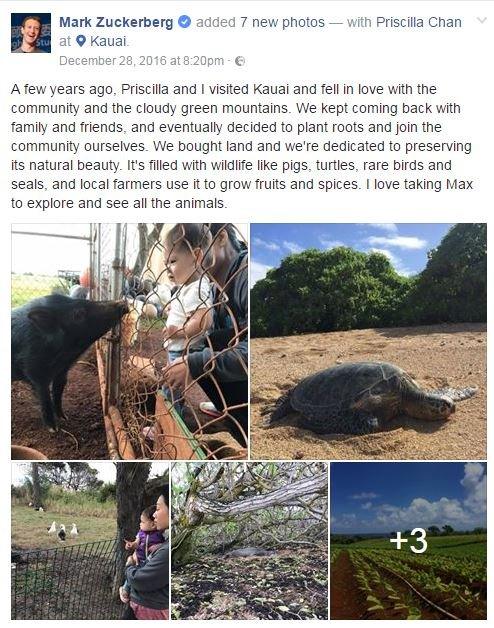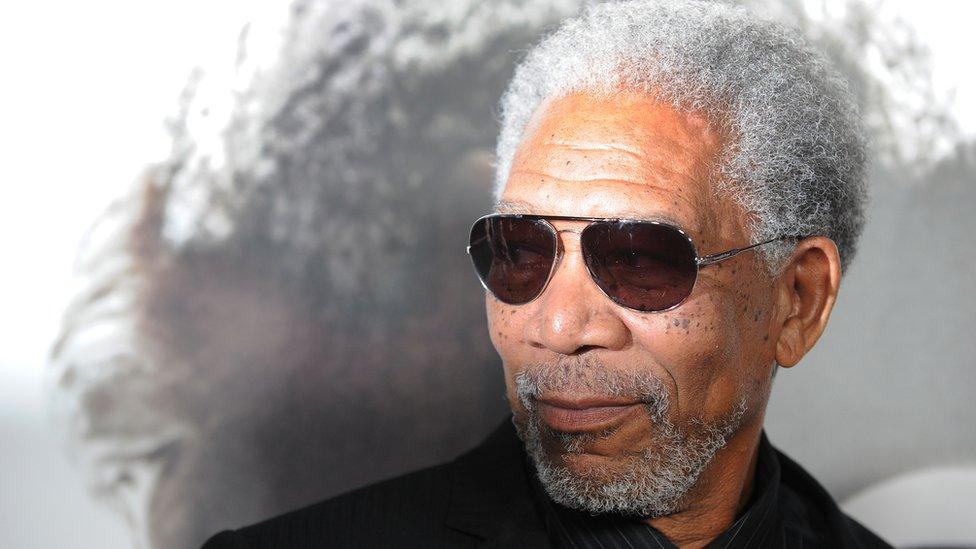Facebook's Mark Zuckerberg drops case to acquire Hawaiian land
- Published

Zuckerberg said he was trying to locate the land's rightful owners to ensure they were fairly paid
Facebook founder Mark Zuckerberg has dropped attempts to acquire land for his Hawaii estate through the courts.
The billionaire tech mogul had filed a legal case seeking to acquire small pockets of land within his large estate on the island of Kauai.
But his use of the so-called "quiet title" legal system led to criticism from other residents.
He said he had not taken the time to fully understand the process. "It's clear we made a mistake," he said.
Mr Zuckerberg bought a 700-acre estate on the Hawaiian island, where he says his family wish to "put down roots".
However, the estate is littered with a number of small parcels of land called kuleana.
Kuleana rights are part of the history of the Hawaiian islands, as the small areas of land were handed out to native tenant farmers in the 1850s. The access, fishing, and water rights can be complex.
The Facebook CEO said he had asked the courts to find the owners of abandoned plots so he could settle ownership with them - many of whom, he said, would not even know they owned any land.

But he faced criticism from some locals, including state representative Kaniela Ing, who argued the effective compulsory purchase would limit access rights for native Hawaiians.
"Who needs 700 acres of paradise? It seems a bit excessive," he said in one video posted to his Facebook page, external.
But Mr Zuckerberg, announcing his decision in a letter to local newspaper The Garden Island, external on Friday, said the controversy had taught him more about the historical significance of the land rights.
"We understand that for native Hawaiians, kuleana are sacred and the quiet title process can be difficult," he wrote.
"Upon reflection, I regret that I did not take the time to fully understand the quiet title process and its history before we moved ahead. Now that I understand the issues better, it's clear we made a mistake."
After Mr Zuckerberg dropped the case, Mr Ing responded saying: "I am humbled. Thousands of everyday people stood up and spoke out against one of the most influential billionaires, the best PR professionals, and the best attorneys in the world, and we won."
- Published3 January 2017

- Published19 November 2016
- Published21 December 2016

- Published21 September 2016
